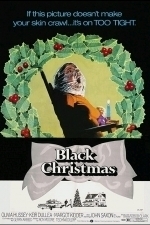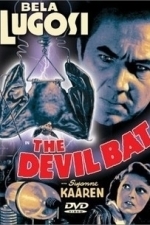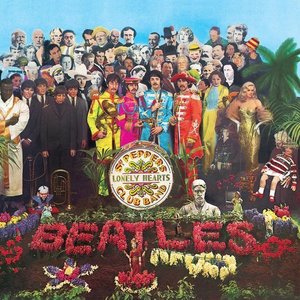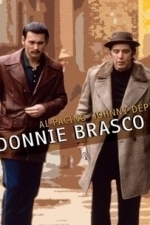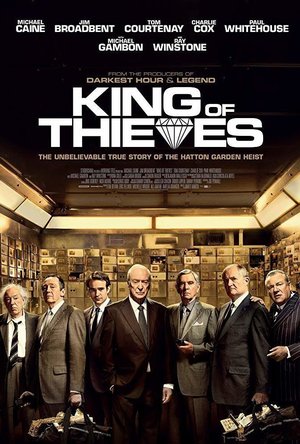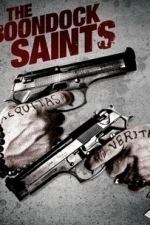Search
Search results
Biff Byford recommended Framed/Next by The Sensational Alex Harvey Band Rock in Music (curated)
Awix (3310 KP) rated A Simple Favor (2018) in Movies
Oct 11, 2018
Competently made and very well-cast suspense drama (kind of). 'Ordinary person' single mother and vlogger Stephanie (Kendrick) ends up becoming besties with dangerously glamorous and enigmatic fellow parent (Lively); when her new pal vanishes, Stephanie decides that something suspicious may have taken place...
Very very much in the same vein as Gone Girl, to the extent that people would probably have been screaming knock-off had this film not also functioned as a rather effective black comedy - you may be wondering what a light comedian like Kendrick is doing fronting a thriller directed by a comedy specialist like Paul Feig; well, this is the reason why. This may also be the reason why the film is cheerily up-front about how far-fetched its own plot is. Not the kind of movie that really lingers in the memory, but nicely put-together and fun while you're watching it.
Very very much in the same vein as Gone Girl, to the extent that people would probably have been screaming knock-off had this film not also functioned as a rather effective black comedy - you may be wondering what a light comedian like Kendrick is doing fronting a thriller directed by a comedy specialist like Paul Feig; well, this is the reason why. This may also be the reason why the film is cheerily up-front about how far-fetched its own plot is. Not the kind of movie that really lingers in the memory, but nicely put-together and fun while you're watching it.
Matthew Krueger (10051 KP) rated Black Christmas (1974) in Movies
Dec 11, 2019
Answer The Phone
With anethor remake coming out this friday, and that i already reviewed the 2006 remake. In going back to the oringal, were it alll started from. So lets take a little trip back to 1974.
Inspired by the urban legend "The babysitter and the man upstairs" and a series of murders that took place in the Westmount section of Montreal, Quebec, Moore wrote the screenplay under the title Stop Me.
The Plot: As winter break begins, a group of sorority sisters, including Jess (Olivia Hussey) and the often inebriated Barb (Margot Kidder), begin to receive anonymous, lascivious phone calls. Initially, Barb eggs the caller on, but stops when he responds threateningly. Soon, Barb's friend Claire (Lynne Griffin) goes missing from the sorority house, and a local adolescent girl is murdered, leading the girls to suspect a serial killer is on the loose. But no one realizes just how near the culprit is.
Margot Kidder remembered shooting the film as being "fun. I really bonded with Andrea Martin, filming in Toronto and Ontario. Olivia Hussey was a bit of an odd one. She was obsessed with the idea of falling in love with Paul McCartney through her psychic. We were a little hard on her for things like that.
Black Christmas eventually gained a cult following and is notable for being one of the earliest slasher films. It went on to inspire other slasher films, the biggest one of all being John Carpenter's Halloween (which was apparently inspired by Clark suggesting what a Black Christmas sequel would be like).
Black Christmas has been included multiple lists in various media outlets as one of the greatest horror films ever made. The film ranked No. 87 on Bravo's The 100 Scariest Movie Moments.
A overall classic slasher horror movie based around a hoilday.
Inspired by the urban legend "The babysitter and the man upstairs" and a series of murders that took place in the Westmount section of Montreal, Quebec, Moore wrote the screenplay under the title Stop Me.
The Plot: As winter break begins, a group of sorority sisters, including Jess (Olivia Hussey) and the often inebriated Barb (Margot Kidder), begin to receive anonymous, lascivious phone calls. Initially, Barb eggs the caller on, but stops when he responds threateningly. Soon, Barb's friend Claire (Lynne Griffin) goes missing from the sorority house, and a local adolescent girl is murdered, leading the girls to suspect a serial killer is on the loose. But no one realizes just how near the culprit is.
Margot Kidder remembered shooting the film as being "fun. I really bonded with Andrea Martin, filming in Toronto and Ontario. Olivia Hussey was a bit of an odd one. She was obsessed with the idea of falling in love with Paul McCartney through her psychic. We were a little hard on her for things like that.
Black Christmas eventually gained a cult following and is notable for being one of the earliest slasher films. It went on to inspire other slasher films, the biggest one of all being John Carpenter's Halloween (which was apparently inspired by Clark suggesting what a Black Christmas sequel would be like).
Black Christmas has been included multiple lists in various media outlets as one of the greatest horror films ever made. The film ranked No. 87 on Bravo's The 100 Scariest Movie Moments.
A overall classic slasher horror movie based around a hoilday.
Matthew Krueger (10051 KP) rated The Devil Bat (1940) in Movies
Jun 17, 2020
Bela Lugosi (1 more)
Bats
Let The Bats Fly
The Devil Bat- a nice classic black and white horror film that starred Bela Lugosi as the villian. Which he is excellent and perfect as. Bela Lugosi perfects the villain role. I love him as a actor. Anways back to The Devil Bat.
The plot: Dr. Paul Carruthers (Bela Lugosi) is frustrated because he thinks his employers, Mary Heath (Suzanne Kaaren) and Henry Morton (Guy Usher), have cheated him out of the company's profits. He decides to get revenge by altering bats to grow twice their normal size and training them to attack when they smell a perfume of his own making. He mixes the perfume into a lotion, which he offers as a gift to Mary and Henry. When they turn up dead, a newspaper reporter (Dave O'Brien) decides to investigate.
Its a classic fun entertaining horror movie with bats attacking people and their master is Bela Lugosi so that is a plus.
The plot: Dr. Paul Carruthers (Bela Lugosi) is frustrated because he thinks his employers, Mary Heath (Suzanne Kaaren) and Henry Morton (Guy Usher), have cheated him out of the company's profits. He decides to get revenge by altering bats to grow twice their normal size and training them to attack when they smell a perfume of his own making. He mixes the perfume into a lotion, which he offers as a gift to Mary and Henry. When they turn up dead, a newspaper reporter (Dave O'Brien) decides to investigate.
Its a classic fun entertaining horror movie with bats attacking people and their master is Bela Lugosi so that is a plus.
Holly Johnson recommended Sgt. Pepper's Lonely Hearts Club Band by The Beatles in Music (curated)
Niten. NR (75 KP) rated Donnie Brasco (1997) in Movies
Jul 15, 2017
Johnny Depp (2 more)
Al Pacino
True Story
Forgettaboutit!
Great film. Great start to a film....Just look at the information passed in the opening credits, we see gangsters, photographs, evidence, this film sets the scene in the first 1 minute, let alone 20. After that, the film plays out brilliantly. Depp plays Don the Jeweller (aka undercover FBI Agent Joe Pistone) infiltrating the New York mob/crime family. Al Pacino plays the flawed gangster Lefty Two Guns. I like a few other supporting roles like Michael Madsen as the rising mob boss Sonny Black, and Paul Giamatti show us great talent in a small role as FBI technician.
This is just a great film where we see Donny torn to pieces by the guilt of not being with his family, the pressure and danger of infiltrating the mob as an undercover agent, and the confused loyalties and love for his connected contact Lefty.
Lefty struggles with his tenuous and fragile position within the mob and looks at Donny as a way up or out.
The film can only go one way but it's fun getting there.
Ill not divulge too much but, for me, its a must watch. Enjoy.
This is just a great film where we see Donny torn to pieces by the guilt of not being with his family, the pressure and danger of infiltrating the mob as an undercover agent, and the confused loyalties and love for his connected contact Lefty.
Lefty struggles with his tenuous and fragile position within the mob and looks at Donny as a way up or out.
The film can only go one way but it's fun getting there.
Ill not divulge too much but, for me, its a must watch. Enjoy.
Heather Cranmer (2721 KP) rated A Man Derailed: An Autobiography on Depression in Books
Jun 7, 2018
(This review can also be found on my blog <a href="http://themisadventuresofatwentysomething.blogspot.co.uk">The (Mis)Adventures of a Twenty-Something Year Old Girl</a>).
As a sufferer of depression, this book definitely caught my attention. This synopsis for this book definitely drew me in, or perhaps I'm just nosy and want to know what it's like for others, lol. Either way, I was very impressed with this book.
A Man Derailed by Paul Holmes is one man's battle with depression due to a major life event. Holmes describes his battle with depression and his ups and downs. He also discusses what helped him get through his depression.
I just want to say that the title, A Man Derailed, is fantastic for this book. I definitely feel that this is a great title for the book due to what happens. I won't go into much more as I don't want to give anything away, but by the end of chapter 1, you will see why this title fits perfectly.
Being as this is an autobiography about one man's struggle with depression, I think the cover is well suited. I like how one side of Holmes' face is all black and the other is decorated in clown make-up. Having depression is like that. On one side, you feel like you're falling into a black abyss. On the other hand, you have to put on a facade to the world as mental health is still a very taboo subject, unfortunately.
Paul Holmes sets up the setting and world building of his book very well. Throughout the book, I felt I was seeing everything happen through his eyes as well as living it with him.
I'm not really a fan of autobiographies as most of the time, the pacing of the book is way too slow for my liking. However, A Man Derailed wasn't like that. The pacing of this book was spot on, and I found myself wanting to know more and more about what Mr. Holmes said or did.
I very much enjoyed how well written this book was. I loved how Holmes was able to inject humour into his book as well, so it wasn't all doom and gloom. A lot of the times, I was actually laughing out loud. I also found myself agreeing with everything Holmes had written. There is quite a bit of swearing, so if you're not big into swear words, be warned. However, I don't mind swearing as I think it totally fit in with the theme of this book. The only problem I found was that there were a lot of punctuation and grammar mistakes. However, this is because I'm a grammar nazi. It didn't really bother me, nor did it take away from the book.
I'd recommend this book to everyone aged 16+ that have/had depression, that know someone with depression, or those who want to have more insight into what it's like having depression.
I'd give A Man Derailed by Paul Holmes a 4.5 out of 5.
As a sufferer of depression, this book definitely caught my attention. This synopsis for this book definitely drew me in, or perhaps I'm just nosy and want to know what it's like for others, lol. Either way, I was very impressed with this book.
A Man Derailed by Paul Holmes is one man's battle with depression due to a major life event. Holmes describes his battle with depression and his ups and downs. He also discusses what helped him get through his depression.
I just want to say that the title, A Man Derailed, is fantastic for this book. I definitely feel that this is a great title for the book due to what happens. I won't go into much more as I don't want to give anything away, but by the end of chapter 1, you will see why this title fits perfectly.
Being as this is an autobiography about one man's struggle with depression, I think the cover is well suited. I like how one side of Holmes' face is all black and the other is decorated in clown make-up. Having depression is like that. On one side, you feel like you're falling into a black abyss. On the other hand, you have to put on a facade to the world as mental health is still a very taboo subject, unfortunately.
Paul Holmes sets up the setting and world building of his book very well. Throughout the book, I felt I was seeing everything happen through his eyes as well as living it with him.
I'm not really a fan of autobiographies as most of the time, the pacing of the book is way too slow for my liking. However, A Man Derailed wasn't like that. The pacing of this book was spot on, and I found myself wanting to know more and more about what Mr. Holmes said or did.
I very much enjoyed how well written this book was. I loved how Holmes was able to inject humour into his book as well, so it wasn't all doom and gloom. A lot of the times, I was actually laughing out loud. I also found myself agreeing with everything Holmes had written. There is quite a bit of swearing, so if you're not big into swear words, be warned. However, I don't mind swearing as I think it totally fit in with the theme of this book. The only problem I found was that there were a lot of punctuation and grammar mistakes. However, this is because I'm a grammar nazi. It didn't really bother me, nor did it take away from the book.
I'd recommend this book to everyone aged 16+ that have/had depression, that know someone with depression, or those who want to have more insight into what it's like having depression.
I'd give A Man Derailed by Paul Holmes a 4.5 out of 5.
Cody Cook (8 KP) rated A Black Theology of Liberation in Books
Jun 29, 2018
James Cone is considered to be the founder of Black Liberation Theology, a variant of the Liberation Theology movement most widely connected with South American theologian Gustavo Gutierrez. Liberation Theology emphasizes those biblical concerns that white European flavored Christianity has often looked over– concerns like justice and liberation for the oppressed and downtrodden (Luke 4:16-21, Matthew 25:31-45, etc.). Though these emphases are quite important, in Liberation movements, they can often drown out other, extremely vital, elements of the Christian faith, as they clearly do in Cone’s Black Liberation Theology.
One major issue for Cone is one of authority. The experience of one group of people (the oppressed) becomes equivalent with universal truth, and not simply an important concern in Christian theology. In other words, Cone makes his own experience the judge of who God is and what God is for. While “white” (a term used by Cone not so much to reflect skin color but an oppressor mentality) Christianity commits this grave error without realizing it, Cone does so with full knowledge. So, for instance, while a conservative “white” theologian would say that his own views and actions *should* be directed by the scripture (whether or not he does in fact direct them by this standard), Cone makes the judgement of the oppressed black community the ultimate truth for them– and if mass violence against whites is decided by the group as the best means to effect their liberation, so be it. Cone explicitly distances himself from the approach of King, identifying more with the violence-prone philosophy of the Nation of Islam as propounded by Malcolm X. If someone criticizes his approach, he seems to assume that they’re doing so as a “white” oppressor and should be ignored– an oppressor has no moral right to question the rightness or wrongness of the actions of the people he is oppressing. This of course ignores the criticisms of violence, even from the oppressed, of black Christians like Martin Luther King Jr., Desmond Tutu, etc. Cone is also unfortunately either unfamiliar with or unconvinced by pacifist Christian claims to be committed to peaceful action, since he equates non-violence with inaction and acquiescence. While he is absolutely correct in seeing liberation as an important theme in the Christian faith, he, like “white” religionists, allows his own experience and emotions to determine what is right and wrong to the point of supporting evil in the interest of what he feels is best for his community. However, what can’t be said of Cone’s position on violence is that it is radical, because it is emphatically not. The political heroes of most white Americans are men who used violence to gain political autonomy. Thus, it is not radical for black men and women to look up to figures like Malcolm X and James Cone who advocate doing the same thing if it seems necessary for freedom and self-determination; it is merely status quo. The problem is that Jesus calls all men and women, regardless of color, to rise above the status quo and the myth of redemptive violence.
Seizing on that point, one major problem with Cone’s view of violent revolution is that when oppressed people rise up through violence, they become the oppressor– co-opting the tools of oppression and dehumanization. “Blacks” become “white” through the use of violence. Cone seems unaware of (doubtful) or unaffected by the history of the Bolshevik, Cuban, or French revolutions, wherein the oppressed quickly became the oppressors and became twofold more a child of hell than their oppressors. His view also reshapes Nat Turner, the slave who claimed to have been directed by God to murder white women and children, into an unqualified hero. Cone’s system re-establishes and re-affirms oppression– it does not end it.
For Cone, God is black and the devil is white, because God supports the oppressed and the devil supports the oppressor. But in so closely identifying God with blackness, the actions of those in the black community are now above being questioned, just like the actions of white enslavers were, according to them, above being questioned because they aligned themselves with God and those whom they oppressed with the devil.
What Cone is really trying to get at is that since Jesus supports the cause of the oppressed, the oppressor must so distance himself from his oppressor identity that he becomes indistinguishable from the oppressed– willing to suffer along with them– if he is to be Christ-like. In other words, the “white” must become “black.” Cone says that God can’t be colorless where people suffer for their color. So, where blacks suffer God is black. Taking this logic, which is indeed rooted in Scripture, where the poor suffer, God is poor. Where babies are killed in the womb, God is an aborted baby. Where gay people are bullied, God is gay. It is our obligation to identify with the downtrodden, because that’s what Jesus did. Paul, quoting a hymn of the church about Jesus, puts it this way:
“In your relationships with one another, have the same mindset as Christ Jesus:
‘Who, being in very nature God,
did not consider equality with God something to be used to his own advantage;
rather, he made himself nothing
by taking the very nature of a servant,
being made in human likeness.
And being found in appearance as a man,
he humbled himself
by becoming obedient to death—
even death on a cross!'”
–Philippians 2:5-8
Jesus not only gives up his power to express love to the powerless by identifying with them, He also takes on their sin and suffers with and for them. This is the essence of the gospel, and it often gets lost when we translate it into our daily lives. For Cone, this important truth gets lost in the banner of black militantism and the cycle of violence. For so many American Christians, it gets lost when they reduce the political nature of Christianity to scolding those whose private expression of morality doesn’t line up with theirs. We refuse to identify with sinners (which is a category we all fit into) in love.
One major issue for Cone is one of authority. The experience of one group of people (the oppressed) becomes equivalent with universal truth, and not simply an important concern in Christian theology. In other words, Cone makes his own experience the judge of who God is and what God is for. While “white” (a term used by Cone not so much to reflect skin color but an oppressor mentality) Christianity commits this grave error without realizing it, Cone does so with full knowledge. So, for instance, while a conservative “white” theologian would say that his own views and actions *should* be directed by the scripture (whether or not he does in fact direct them by this standard), Cone makes the judgement of the oppressed black community the ultimate truth for them– and if mass violence against whites is decided by the group as the best means to effect their liberation, so be it. Cone explicitly distances himself from the approach of King, identifying more with the violence-prone philosophy of the Nation of Islam as propounded by Malcolm X. If someone criticizes his approach, he seems to assume that they’re doing so as a “white” oppressor and should be ignored– an oppressor has no moral right to question the rightness or wrongness of the actions of the people he is oppressing. This of course ignores the criticisms of violence, even from the oppressed, of black Christians like Martin Luther King Jr., Desmond Tutu, etc. Cone is also unfortunately either unfamiliar with or unconvinced by pacifist Christian claims to be committed to peaceful action, since he equates non-violence with inaction and acquiescence. While he is absolutely correct in seeing liberation as an important theme in the Christian faith, he, like “white” religionists, allows his own experience and emotions to determine what is right and wrong to the point of supporting evil in the interest of what he feels is best for his community. However, what can’t be said of Cone’s position on violence is that it is radical, because it is emphatically not. The political heroes of most white Americans are men who used violence to gain political autonomy. Thus, it is not radical for black men and women to look up to figures like Malcolm X and James Cone who advocate doing the same thing if it seems necessary for freedom and self-determination; it is merely status quo. The problem is that Jesus calls all men and women, regardless of color, to rise above the status quo and the myth of redemptive violence.
Seizing on that point, one major problem with Cone’s view of violent revolution is that when oppressed people rise up through violence, they become the oppressor– co-opting the tools of oppression and dehumanization. “Blacks” become “white” through the use of violence. Cone seems unaware of (doubtful) or unaffected by the history of the Bolshevik, Cuban, or French revolutions, wherein the oppressed quickly became the oppressors and became twofold more a child of hell than their oppressors. His view also reshapes Nat Turner, the slave who claimed to have been directed by God to murder white women and children, into an unqualified hero. Cone’s system re-establishes and re-affirms oppression– it does not end it.
For Cone, God is black and the devil is white, because God supports the oppressed and the devil supports the oppressor. But in so closely identifying God with blackness, the actions of those in the black community are now above being questioned, just like the actions of white enslavers were, according to them, above being questioned because they aligned themselves with God and those whom they oppressed with the devil.
What Cone is really trying to get at is that since Jesus supports the cause of the oppressed, the oppressor must so distance himself from his oppressor identity that he becomes indistinguishable from the oppressed– willing to suffer along with them– if he is to be Christ-like. In other words, the “white” must become “black.” Cone says that God can’t be colorless where people suffer for their color. So, where blacks suffer God is black. Taking this logic, which is indeed rooted in Scripture, where the poor suffer, God is poor. Where babies are killed in the womb, God is an aborted baby. Where gay people are bullied, God is gay. It is our obligation to identify with the downtrodden, because that’s what Jesus did. Paul, quoting a hymn of the church about Jesus, puts it this way:
“In your relationships with one another, have the same mindset as Christ Jesus:
‘Who, being in very nature God,
did not consider equality with God something to be used to his own advantage;
rather, he made himself nothing
by taking the very nature of a servant,
being made in human likeness.
And being found in appearance as a man,
he humbled himself
by becoming obedient to death—
even death on a cross!'”
–Philippians 2:5-8
Jesus not only gives up his power to express love to the powerless by identifying with them, He also takes on their sin and suffers with and for them. This is the essence of the gospel, and it often gets lost when we translate it into our daily lives. For Cone, this important truth gets lost in the banner of black militantism and the cycle of violence. For so many American Christians, it gets lost when they reduce the political nature of Christianity to scolding those whose private expression of morality doesn’t line up with theirs. We refuse to identify with sinners (which is a category we all fit into) in love.
Awix (3310 KP) rated King of Thieves (2018) in Movies
Oct 10, 2018
Michael Caine leads a crack team of crock crooks in robbing a safe deposit vault in London in this loosely-based-on-reality black comedy thriller. Quite apart from Caine, the film has an excellent cast (Jim Broadbent, Tom Courtenay, Ray Winstone, Paul Whitehouse, and Michael Gambon, plus Charlie Cox for the streaming generation), which will probably be what draws most people to it.
Initially this looks like it's going to be a slightly cosy comedy thriller about blokes who are too old be robbers any more, but - very pleasantly - it quite soon acquires some real heft and gravity to it, with the various members of the gang falling out and attempting to double-cross each other - most of these actors are well-known as comedians, but there is some proper meaty drama here and scenes with a definite tension to them.
Not quite as much Caine as you might hope for, but he is still the guv'nor as far as British film acting is concerned, and this is his best role for a while. Everyone else is good too. The film never quite gets the shifts between comedy and gangster thriller right, and the low budget keeps it from being very cinematic, but it's an engaging movie driven by great performances.
Initially this looks like it's going to be a slightly cosy comedy thriller about blokes who are too old be robbers any more, but - very pleasantly - it quite soon acquires some real heft and gravity to it, with the various members of the gang falling out and attempting to double-cross each other - most of these actors are well-known as comedians, but there is some proper meaty drama here and scenes with a definite tension to them.
Not quite as much Caine as you might hope for, but he is still the guv'nor as far as British film acting is concerned, and this is his best role for a while. Everyone else is good too. The film never quite gets the shifts between comedy and gangster thriller right, and the low budget keeps it from being very cinematic, but it's an engaging movie driven by great performances.
TheDefunctDiva (304 KP) rated The Boondock Saints (1999) in Movies
Sep 26, 2017
B is for Bad A**
Contains spoilers, click to show
This entertaining action film opens with aerial views of Boston and narration of the Lord's Prayer on St. Patty's Day. Soon, we are introduced to two Irish brothers, Connor and Murphy MacManus. The terrible twosome work in a meat-packing plant: in their spare time, they slaughter evildoers. What could be better? With their black shirts, black blazers, and blue jeans, the brothers seem like Mormon missionaries gone horribly wrong.
Connor and Murphy (played by Sean Patrick Flanery and Norman Reedus), fall into the
profession of murdering bad guys quite by accident. Initially, the fact that they killed a Russian crime lord, and his associate, after a bar fight seems a coincidental act of self-defense. They are hailed, at first, as heroes. They somehow continue to avoid prosecution, though from the beginning they are being pursued by FBI agent Paul Smecker. They start targeting the crime lords on purpose, and they eventually end up being hunted by a more ominous figure, the legendary hitman Il Duce.
Willem Dafoe gets an A for awesome in my book for his performance as FBI agent Paul Smecker. Smecker is a homosexual, and he is not apologetic about it. In fact, he draws attention to his orientation in many scenes. Particularly memorable is the moment where he corrects an officer’s use of the word “symbology” by hissing a pronounced s: “ssssymbolism.” Later in the film, Dafoe even gets the opportunity to use his feminine wiles by dressing in drag, a visual experience which I promise is as disconcerting as it sounds.
The presentation of Smecker’s crime scene explanations was particularly impressive. The crime scene was shown first, and the events that created it unfolded in retrospect as Smecker described the scene. Enhanced by the intensity of the score, Dafoe offered a memorable narration of an epic shootout, during which he resembles an insane conductor.
The writing in this film was great, with witty one-liners throughout to break the tension. There were several moments in the film where one wonders if the brothers’ success is due to dumb luck or divinity. The MacManus twins certainly seem to believe that their cause is a righteous one.
I must also acknowledge the score, by Jeff Danna, which beautifully compliments the opening sequence and the rest of the film. The score even includes a variation of a hymn, infused with a beat you can dance to.
I love a good revenge film, and this is one for the ages. To sum up my complex feelings about the vigilante-style justice in this film, I must end with a quote by Connor MacManus: "I'm strangely comfortable with it."
Connor and Murphy (played by Sean Patrick Flanery and Norman Reedus), fall into the
profession of murdering bad guys quite by accident. Initially, the fact that they killed a Russian crime lord, and his associate, after a bar fight seems a coincidental act of self-defense. They are hailed, at first, as heroes. They somehow continue to avoid prosecution, though from the beginning they are being pursued by FBI agent Paul Smecker. They start targeting the crime lords on purpose, and they eventually end up being hunted by a more ominous figure, the legendary hitman Il Duce.
Willem Dafoe gets an A for awesome in my book for his performance as FBI agent Paul Smecker. Smecker is a homosexual, and he is not apologetic about it. In fact, he draws attention to his orientation in many scenes. Particularly memorable is the moment where he corrects an officer’s use of the word “symbology” by hissing a pronounced s: “ssssymbolism.” Later in the film, Dafoe even gets the opportunity to use his feminine wiles by dressing in drag, a visual experience which I promise is as disconcerting as it sounds.
The presentation of Smecker’s crime scene explanations was particularly impressive. The crime scene was shown first, and the events that created it unfolded in retrospect as Smecker described the scene. Enhanced by the intensity of the score, Dafoe offered a memorable narration of an epic shootout, during which he resembles an insane conductor.
The writing in this film was great, with witty one-liners throughout to break the tension. There were several moments in the film where one wonders if the brothers’ success is due to dumb luck or divinity. The MacManus twins certainly seem to believe that their cause is a righteous one.
I must also acknowledge the score, by Jeff Danna, which beautifully compliments the opening sequence and the rest of the film. The score even includes a variation of a hymn, infused with a beat you can dance to.
I love a good revenge film, and this is one for the ages. To sum up my complex feelings about the vigilante-style justice in this film, I must end with a quote by Connor MacManus: "I'm strangely comfortable with it."


